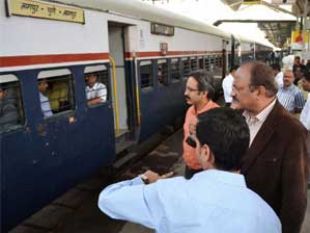
New Delhi, November 30: It will be mandatory for sleeper- class train passengers to carry identity proof from December 1, this year as Railways firmed up steps to prevent misuse of tickets by touts and facilitate hassle-free travel by bonafide people.
From Saturday (December 1), passengers failing to produce original identity proof in sleeper class, as and when asked for, will be treated as "without ticket" and charged accordingly, said a senior Railway Ministry official.
The rule will apply for all forms of ticket, including those for sleeper class, issued by Railways through computerised passenger reservation system (PRS) or Internet.
The decision to introduce photo I-cards for sleeper class passengers is likely to deter touts from booking tickets under fictitious names and selling them to passengers at a premium, the official said.
In February, Railways had made it mandatory for AC-class passengers to carry identity proof with them. Passengers travelling on a Tatkal or an e-ticket are also required to carry I-cards while undertaking train journey.
"Earlier, it was mandatory for AC-class passengers to carry I-cards. Now, we have decided to make sleeper-class passengers also to carry I-card. This has been done to facilitate genuine passengers to avail confirmed tickets," said the official.
He said the non-AC travellers were kept out of the photo I-card decision at that time, adding, "The policy ambit is being widened now so that every passenger in reserved class onboard a train has a valid identity card."
Passengers can carry any of these ten ID proofs while undertaking train journey -- voter ID card, passport, PAN card, driving licence, photo identity card having serial number issued by central/state government, student identity card with photograph issued by recognised school/college, Aadhar card, nationalised bank passbook with photograph and credit cards issued by banks with laminated photograph.






Comments
Add new comment